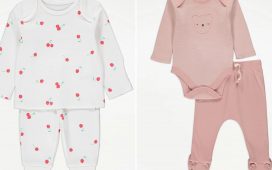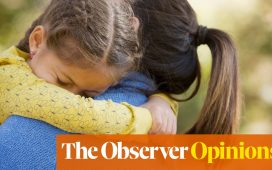When I look at my newborn son, whose eyes crinkle as he smiles, and his older sister who wakes each morning asking to give him cuddles, I find it hard to believe that the NHS would describe our family as a “burden on society”.
But, because I’m a single mother who used fertility treatment and a sperm donor to conceive my children, this is how NHS South East London sees us.
The partnership of five hospital trusts and six clinical commissioning groups this week banned single women from accessing IVF, citing a document that says giving IVF to single women produces a “known disadvantage” to both the child and the mother. Which appears to be a polite way of saying: “Stop reproducing – you and your children are duds.”
That this “known disadvantage” does not in fact exist has perhaps passed NHS South East London by. Maybe the commissioners are unaware that the effect of solo parenting is being studied by the Centre for Family Research at the University of Cambridge, under Professor Susan Golombok.
I spoke to Dr Sophie Zadeh, a fellow in social psychology at the CFR, as part of research for my book, Going Solo. She told me that one thing solo mothers all tend to have in common is being good parents. “But that’s probably true of all parents who use assisted reproduction methods,” she explained. This is the reality of families that have chosen to have invasive fertility treatment: all of these children are so very wanted and planned.
Dr Zadeh looked into whether a one-parent family is destabilising for children. She found that unlike children of divorced parents – who can suffer because of parental conflict before, during and after their parents’ divorce, and from a drop in financial circumstances – there is no difference between children in one-parent and two-parent families.
And yet, in comments seen by the Sunday Times that feel like an echo from another, less tolerant era, NHS South East London believes single mothers are unable “to bring out the best outcomes for the child”.
I wonder if the people behind these comments have spent any time with a solo parent family. I invite them to come and meet mine.
I conceived my children with the help of fertility treatment while living in the NHS South East London area. My GP was supportive but unable to offer help beyond fertility blood tests.
So I willingly spent my savings on fertility treatment. The IVF postcode lottery is a real problem for people longing to have babies: it desperately needs to be made uniform countrywide. But of the hundreds of solo mums I’ve spoken to, only one had IVF on the NHS – and she previously had cancer. It is far less expensive to self-fund IVF than to go through the multiple rounds of artificial insemination required to qualify for treatment as a single person.
People understand that the NHS has limited funds. But instead of explaining problems through overstretched budgets, the commissioners chose to criticise single parents in what sounds like an attack on people living in poverty who want to procreate. “Single mothers are generally poorer; they are likely to have greater support needs compared to two-parent couples,”the NHS comments read.
Like so many solo mothers, I believe deciding to have my children was the biggest and very best choice I have ever made. There was nothing whimsical about it: I had counselling to learn how to introduce the subject of donor conception to my children as soon as they were able to speak. When they are 18, they’ll be able to get in touch with the donor – if they’re interested – so they can understand that part of their history.
Our home is full of love and laughter; I feel so very lucky. There are times when I think it must be wonderful to have the support of a partner: when my daughter has a temperature, or I’m deciding whether to take my son to A&E; when making decisions about childminders and nurseries. But never have I wished for a partner to help me in what the NHS suggests I lack: the capacity to “exert control over children”.
Perhaps it’s simply because my children are so young – it will be a long time before I learn to bring up teenagers – but I mainly stick to encouraging, explaining, even singing, plus the odd firm no, to encourage pleases and thank yous, and to make tidying up and teeth-brushing fun. The notion of “exerting control”, like so much else the commissioners describe, sounds like it comes from a time when children were seen and not heard.
The comfort I take is that 25 years ago these views would have been widespread. Today, they have provoked debate. In the future, I believe society will accept and celebrate families of all shapes and sizes and understand that love, security and openness are the most important things to offer children.
• Genevieve Roberts is author of Going Solo: My Choice to Become a Single Mother Using a Donor, published by Piatkus














